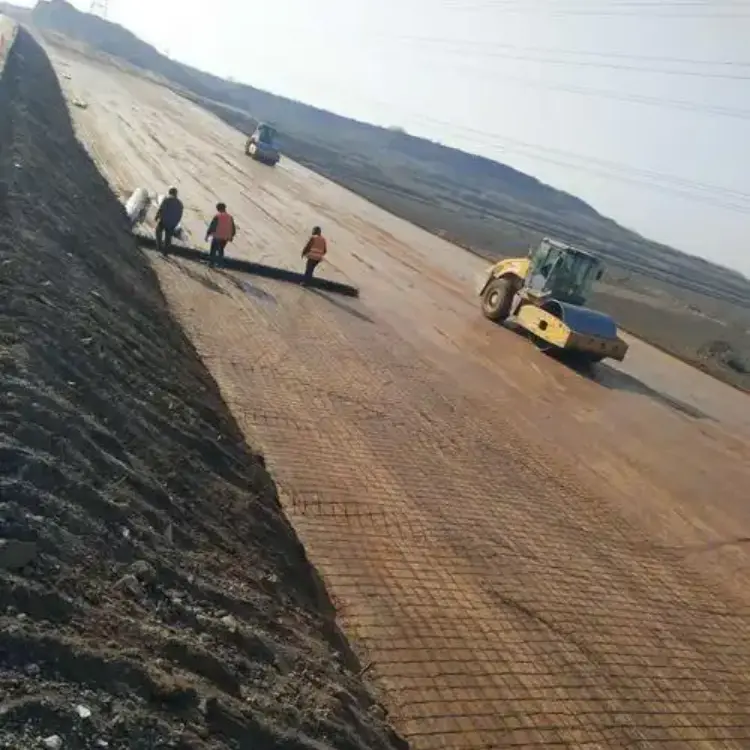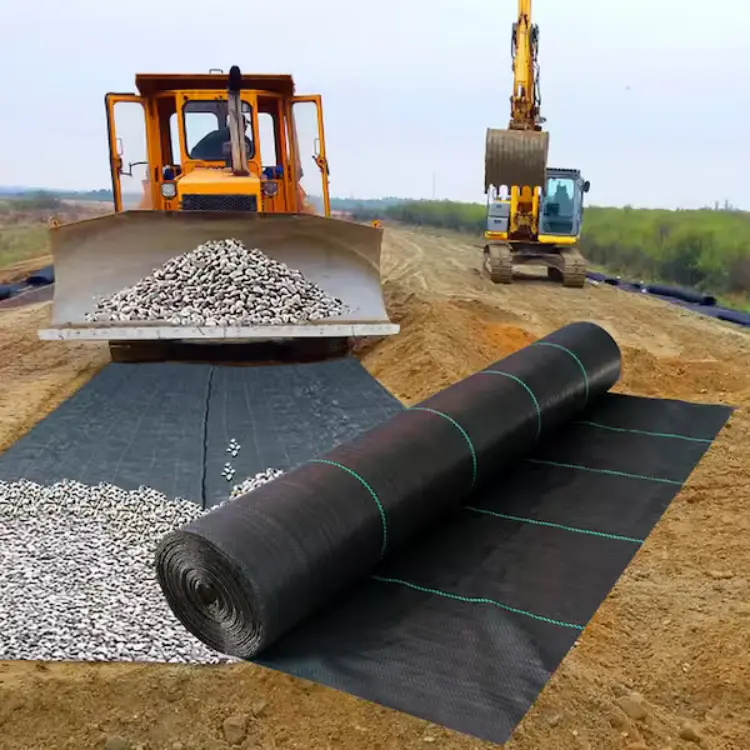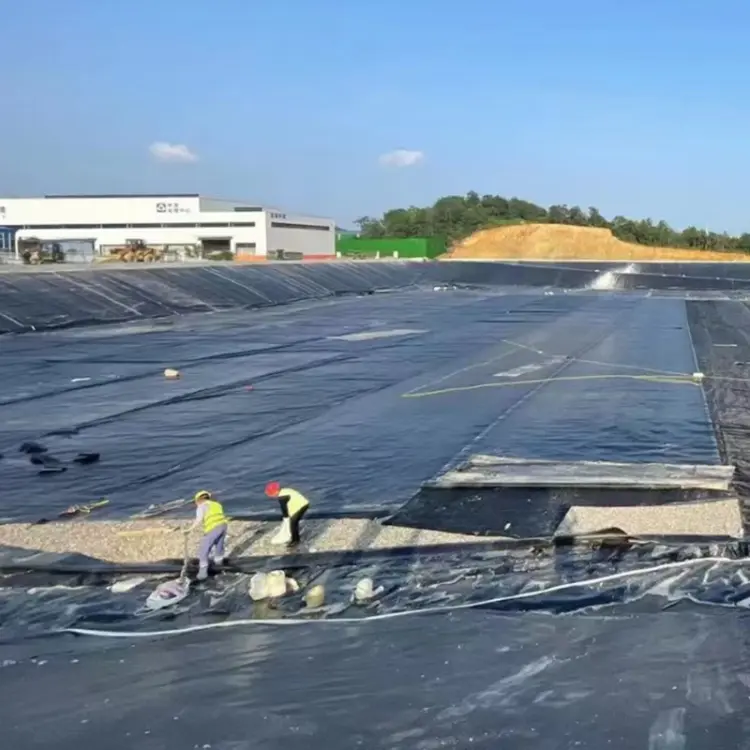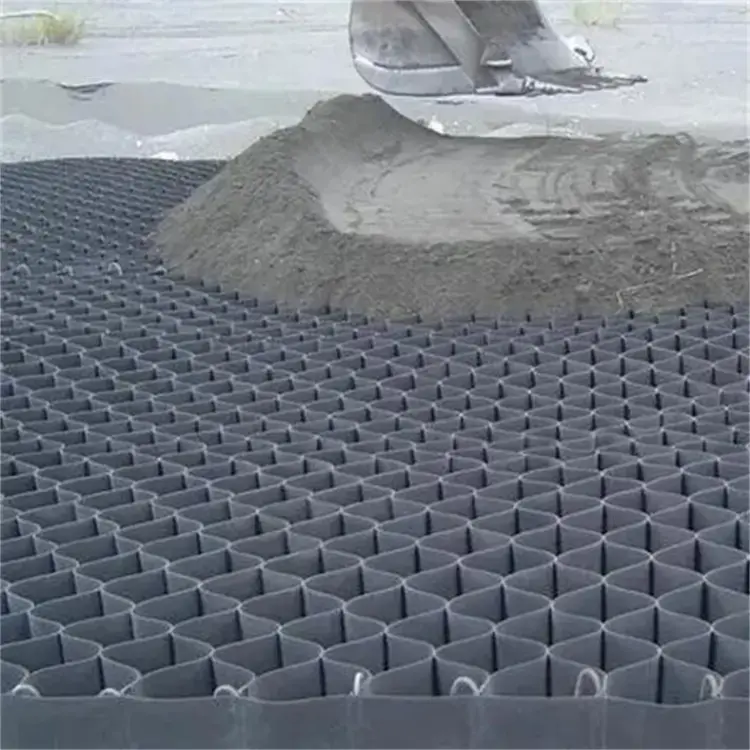Project Background
River embankment protection is critical in hydraulic engineering to prevent erosion from water flow and wave action. Traditional methods (e.g., rock/concrete revetments) face challenges like high costs and poor ecological compatibility. Biaxial geogrids—polymer-based geosynthetics formed by biaxial stretching—offer advanced solutions with superior tensile strength and environmental adaptability.
Technical Advantages of Biaxial Geogrids
| Property | Performance Metric | Engineering Benefit |
|---|---|---|
| Tensile Strength | 30-100 kN/m (ASTM D6637) | Resists hydrodynamic forces |
| Elongation at Break | ≤12% (ISO 10319) | Minimizes embankment deformation |
| Durability | >50-year service life (GRI GG7) | UV/chemical corrosion resistance |
| Installation Efficiency | 40% faster vs. traditional methods | Reduces project timelines |

Case Study: Urban River Revetment Project
Site Specifications
- Location: Suburban river section (5 km length)
- Threat: Rapid flow velocity causing severe bank erosion
- Design: 3m protective height
Construction Protocol
- Subgrade Preparation
- Remove debris and loose soil; compact slope to 90% MDD (ASTM D1557).
- Geogrid Deployment
- Lay TX170 biaxial geogrids perpendicular to flow direction.
- Anchor edges with 12mm steel stakes at 1m intervals.
- Overlap & Connection
- Maintain ≥15cm overlaps; secure with polymeric connectors.
- Backfill & Compaction
- Place ≤15cm gravel/sand fill; compact with 6-10t roller (unidirectional passes).
- Ecological Enhancement
- Plant vetiver grass for bioengineering stabilization.
Performance Outcomes
✅ Structural Integrity
- Erosion reduced by 75% post-construction
- Zero deformation under 50-year flood events
✅ Economic & Ecological Gains
- 30% cost savings vs. concrete revetments
- 95% vegetation coverage achieved in 6 months
Global Geogrid Market Trends (2025-2031)
| Parameter | Value | Growth Driver |
|---|---|---|
| Market Size (2025) | $1.84 billion | Infrastructure stimulus packages |
| Projected (2031) | $2.91 billion | Climate-resilient construction |
| CAGR | 6.8% | Mining sector demand (+22% YoY) |
| China Dominance | 38% global share | “Sponge City” initiatives |
Innovation Frontiers & Development Prospects
Material Advancements
- High-Performance Polymers: Carbon-fiber reinforced grids (tensile strength >120 kN/m)
- Smart Geogrids: Embedded strain sensors for real-time monitoring (IoT integration)
Sustainability Initiatives
- Recycled Content Geogrids: ≥50% post-consumer HDPE (ISO 14021 certified)
- Bio-Based Alternatives: PLA (polylactic acid) grids for eco-sensitive zones
Emerging Applications
- Renewable Energy: Solar farm foundation stabilization
- Mine Rehabilitation: Slope angle enhancement to 70°
- Coastal Barriers: Hybrid systems with geotextile filters
Industry Projection: Biaxial geogrids will capture 62% of the $4.3B geosynthetics market by 2030, driven by flood control infrastructure investments (Global Market Insights, 2023).


